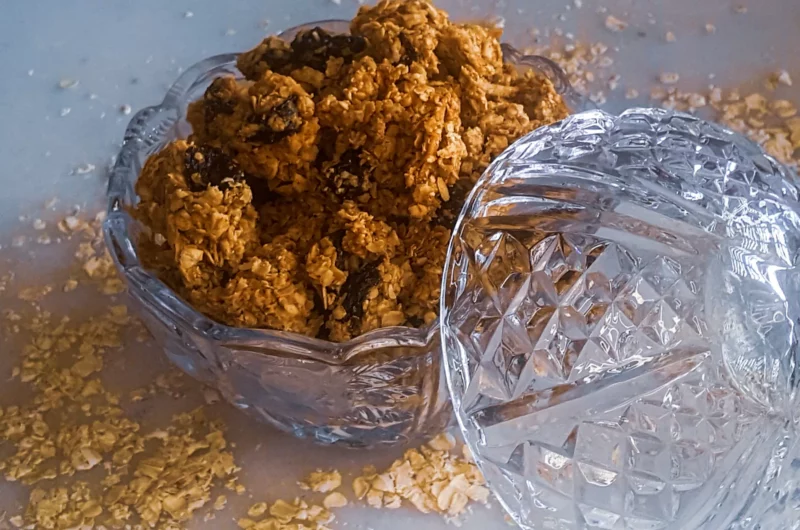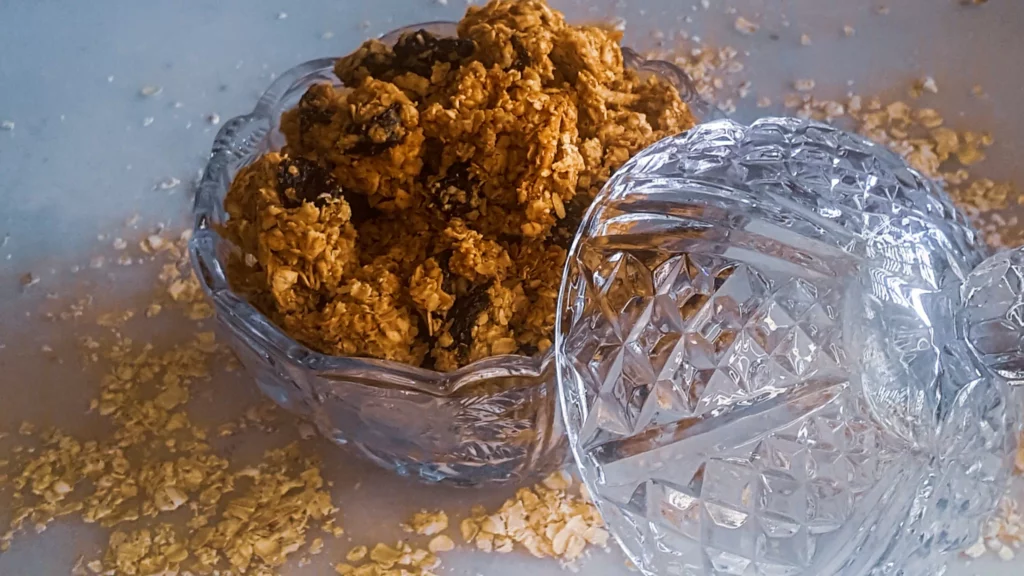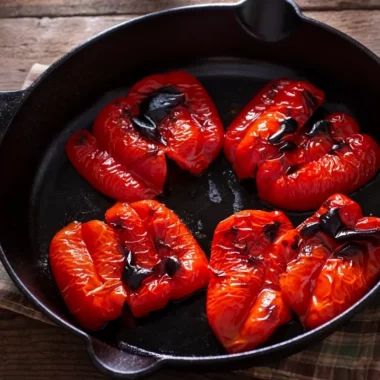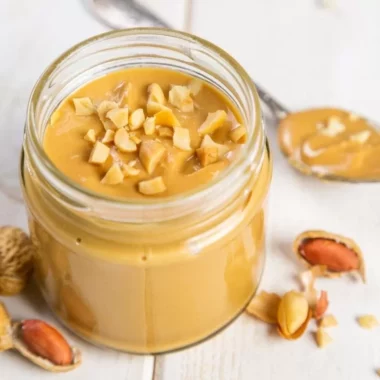The simplest foods that require minimal effort are the best foods, and this peanut butter cherry granola is absolutely amazing. Granola is one of my favorite foods.
It is literally one of the easiest breakfasts on the planet. Best of all, once the peanut butter cherry granola is prepared, there’s no cooking involved. Simply place the granola into a bowl and add your favorite toppings. Featuring peanut butter, cherries, coconut, spices, sea salt, and maple syrup, this peanut butter cherry granola is irresistibly delicious.
What Is Peanut Butter?
Essentially peanut butter is peanuts that are usually roasted and ground until they transform into a paste. Peanut butter is considered to be a relatively unprocessed product.
However, many commercial peanut butter brands contain additives such as sugar, vegetable oils, and trans fat. Consuming too much trans fat is associated with coronary heart disease, a leading cause of death globally resulting in an estimated 17.9 million deaths every year.
Added sugars are a risk factor for cardiometabolic diseases, including obesity, type 2 diabetes mellitus, and cardiovascular disease. It’s best to limit your consumption of added sugars, so choose a peanut butter that features one single ingredient: peanuts.
A little salt is okay. However, avoid processed peanut butter that contains several additives.
Is Peanut Butter Gluten-Free?
In their natural state, peanuts and peanut butter are gluten-free foods. Most commercial peanut butter brands are gluten-free.
As mentioned above, some store-bought peanut butter can contain additives such as trans fat, oil, sugar, or other additives. Though it is rare, some store-bought peanut butter may contain gluten, so opt for gluten-free.
In addition to this, some brands of peanut butter are produced in facilities where wheat is processed. However, this information is always included in the labeling allowing you to assess your contamination risks before purchasing peanut butter processed in the same facility as wheat.
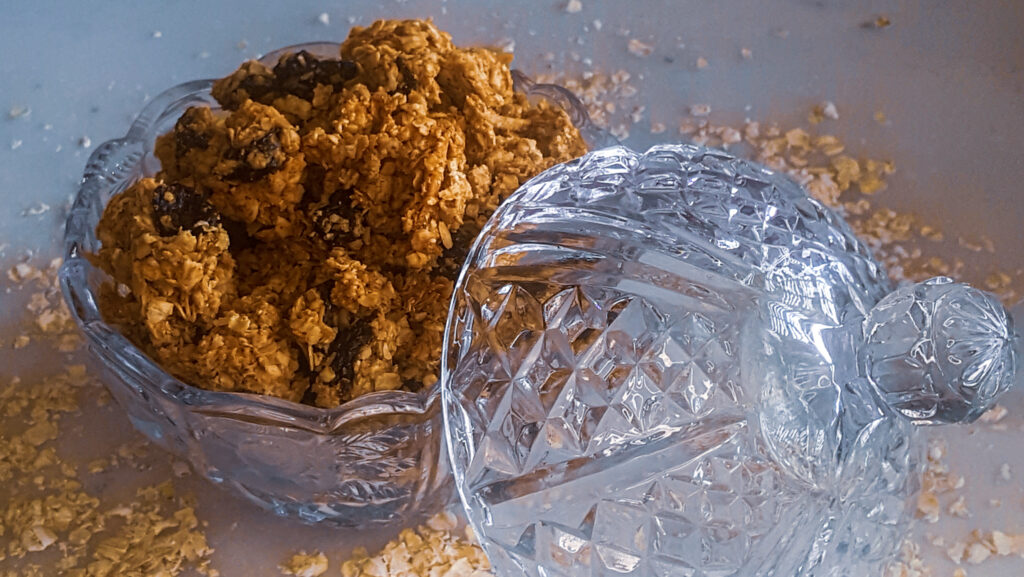
Health Benefits Of Peanut Butter
Several studies provide evidence that peanuts or peanut oil consumption are linked to reduced cardiovascular disease (CVD) risk. In addition to this, peanut and peanut oil consumption may also improve serum lipid profiles, decrease LDL oxidation, and provide a cardioprotective effect.
Peanut and peanut products, including peanuts, peanut oil, and peanut butter, may be used to craft a Monounsaturated fatty acid (MUFA) rich diet that reduces cholesterol, which is better than a low-fat diet when it comes to CVD protection.
Peanuts were also beneficial in lowering the risk of type 2 diabetes. Furthermore, cashew, walnuts, almonds, and peanuts have demonstrated their ability to improve plasma antioxidant capacity and plasma oxidized LDL.
Health Benefits Of Cherries
Cherries are classified as drupes, a subspecies of fruit species. Drupes may also be called stone fruits since they have an outer layer of flesh, thin skin, and a pit in the center of the fruit which is in common with stone fruits such as mangoes.
Believe it or not, there are hundreds of varieties of cherries. However, they are two primary types of cherries: sweet cherries, scientifically known as Prunus avium L., and tart cherries, scientifically known as Prunus cerasus L.
Like bell peppers, cherries are a nutrient-dense drupe with a moderately low-calorie count. More importantly, cherries contain notable amounts of essential nutrients and bioactive composites such as potassium, polyphenols, fiber, vitamin C, and carotenoids.
Cherries are also an excellent source of tryptophan, serotonin, and melatonin. Published research from animal and human studies suggests eating cherries may decrease the risk of several chronic inflammatory diseases such as cancer, arthritis, diabetes, and cardiovascular disease.
Furthermore, there is also research that suggests consuming cherries may boost sleep and cognitive function. In particular, tart or sour cherries consumption is said to be beneficial to exercise-induced muscle damage.

